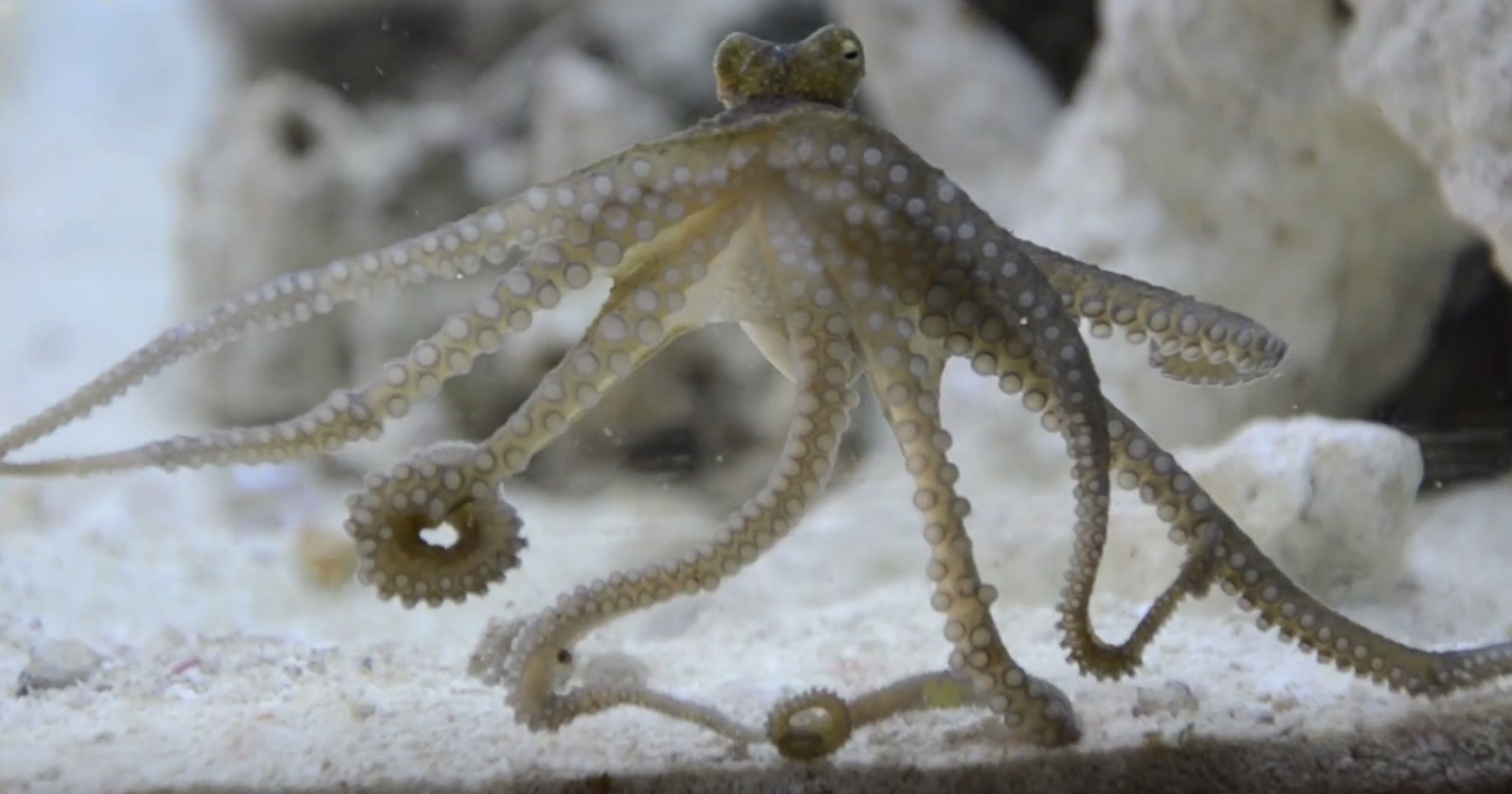 Evolution
Evolution
 Intelligent Design
Intelligent Design
Loving Goodbye…from an Octopus?

The film My Octopus Teacher (2020) paved the way for studying the intelligence of the remarkable eight-armed creature. One outcome has been more attention paid to other remarkable stories of human–octopus friendships.
At Hakai Magazine, we learn about a part-time science teacher who befriended an octopus and learned a sad truth about her eight-armed companion:
One of the first octopuses Nitz raised was an algae octopus (Abdopus aculeatus) she named the Once-ler after the narrator of The Lorax by Dr. Seuss. She and her daughters would stand in front of the Once-ler’s tank and wave their whole arms as though they were undulating blades of kelp. Eventually, the Once-ler started waving back, imitating their movements with a single arm while keeping all the others tucked neatly beneath her or stuck to the glass. It became a frequent ritual.
When the Once-ler started laying eggs, Nitz steeled herself for what would happen next. As female octopuses brood, they become sluggish and start to deteriorate, losing pigmentation and muscle tone and forming lesions that never heal. The Once-ler spent most of her time with half her body inside her den, guarding her eggs, occasionally extending an arm to probe a piece of food, though she eventually stopped eating altogether. One morning, Nitz woke up and found thousands of baby octopuses, each smaller than a grain of rice, bobbing and spinning through the tank. The Once-ler had torn apart her den to help her children swim free. Now, she was sprawled on the bottom of the tank, sickly pale, her mantle heaving with every labored breath. Nitz sat in front of the tank with her daughters, her hand on the glass, crying softly as their beloved octopus’s breathing became slower and heavier. Suddenly the Once-ler did something none of them expected in those last moments: she inhaled deeply, raised her arm, and waved. “I waited for more breaths, but there weren’t any,” Nitz recalls. Maybe that final gesture was merely a muscle spasm caused by short-circuiting neurons. Perhaps, in their grief, Nitz and her family were seeing what they wanted to see. Still, Nitz says, “it felt for all the world like she was waving goodbye.”
FERRIS JABR, “CAN WE REALLY BE FRIENDS WITH AN OCTOPUS?” AT HAKAI MAGAZINE (JANUARY 11, 2022)
It’s impossible to know if the octopus was waving goodbye. A cat who is about to be put to sleep by the vet (due to, say, no-longer-treatable kidney failure) can easily be interpreted as acting like he knows he is about to die. But we humans are probably over-interpreting his behavior.
Read the rest at Mind Matters News, published by Discovery Institute’s Bradley Center for Natural and Artificial Intelligence.
